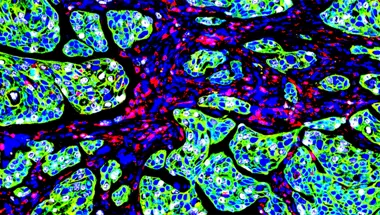
Biography
Anthony Baptista is a Postdoctoral Research Fellow in Anita's group at King's College London (KCL) and the Alan Turing Institute. Currently, his research focuses on three primary areas, each connected by a central question: How can mathematical models drive innovation and create new tools to address questions in cancer biology?
These research areas include:
- Network Analysis and TDA for Spatial Biology – This research aims to develop novel network-based methods for pattern analysis, tailored to the downstream analysis of spatial transcriptomics data. Drawing inspiration from established cell-cell networks used in single-cell trajectory inference, this approach seeks to integrate transcriptomic data with additional modalities, such as spatial proteomics or spatial genomics.
- Dynamics Inference – This area explores the application of differential geometry to gain deeper insights into oncogenesis and assess cancer risk scores using spatialtranscriptomics data. A major focus is on quantifying uncertainty in personalized predictions, allowing for more individualized and accurate risk assessments.
- Explainable AI – This research aims to create new AI methodologies specific to spatial transcriptomics, alongside advanced mathematical tools that enhance clinical AI transparency. One line of inquiry examines the effectiveness of transfer learning in quantifying tissue expression levels in imaging data, particularly when the neural network is pre-trained on spatial transcriptomics from similar tissue types.
Research

The Spatial Biology Facility
a joined initiative between the Faculty of Life Sciences & Medicine and the Faculty of Dentistry, Oral & Craniofacial Sciences at King’s College London
Research

The Spatial Biology Facility
a joined initiative between the Faculty of Life Sciences & Medicine and the Faculty of Dentistry, Oral & Craniofacial Sciences at King’s College London
